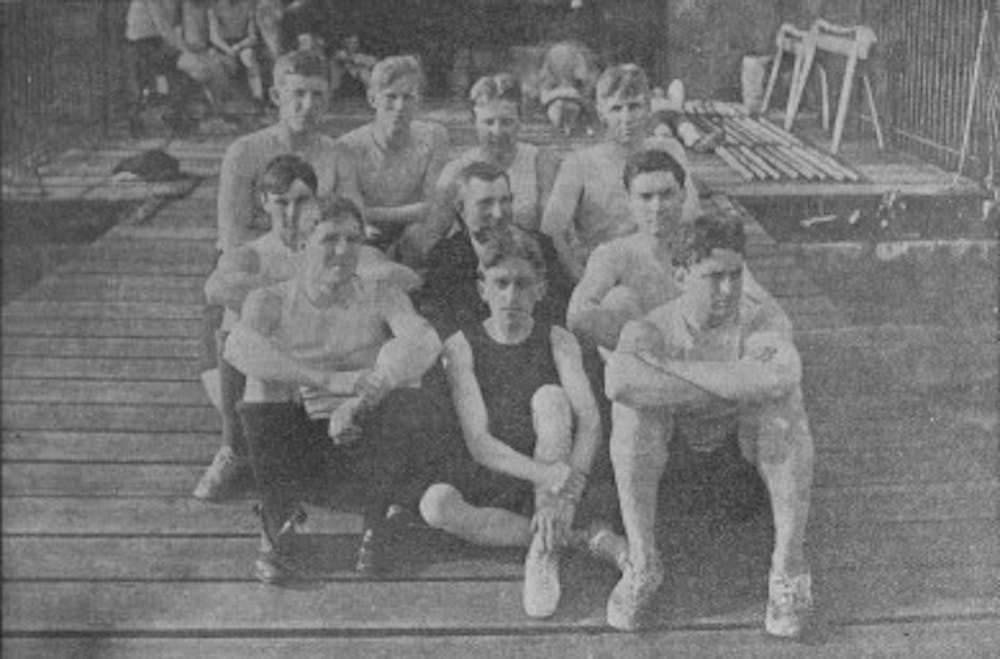
At the end of the 1890s and early 1900s, Penn rowing coach Ellis Ward took the team to new heights.
Credit: DP ArchivesIn the United States, the origins of rowing are traced mainly to New York. The sport then spread rapidly throughout New England and soon after ended up in Philadelphia. Once the rowing craze arrived in Philadelphia, Penn's interest in rowing increased and eventually, students got involved.
The official Penn rowing team dates back to 1875, the first year the team rowed competitively. However, technically speaking, their first official races were not until 1879. This was the year the Red and Blue had their first-ever intercollegiate rowing event. Prior to this, from 1875 to 1879 and, even after, the Quakers competed in the Schuylkill Navy Regattas.
The Quakers attained immediate success. Their first race was on June 24, 1879, when the Red and Blue took on Princeton and Columbia University in the Childs Cup. Prior to the event, Columbia was highly renowned as the best rowing team in the U.S. Despite this, the Red and Blue still ended up with a victory over both the Tigers and the Lions to secure the first-ever Childs Cup. Following this amazing victory, the Quakers went on to win eight out of the 10 Childs Cups between 1879 and 1891.
All races prior to 1880 had been in a four-oar crew, but, in 1881, the first eight-oar crew was formed, although it would be five years before the crew started racing competitively. The varsity eight's first race came in 1886, against Columbia and Yale.
In 1892, Penn's rowing coach, Ellis Ward, resigned and was replaced by a Penn law student, George Woodruff, who was simultaneously coaching the football team. With Woodruff stretched thin between the two teams and the Quakers were also experiencing mounting financial troubles, Penn needed a miracle, and they were given one.
Following the team's lull, Ward returned in 1896 and took the team to new heights. The Quakers had received last place in 1895, but, with Ward’s return, just one season later, the team placed third. By 1898, the Red and Blue was one of the top collegiate racing teams in the world.
The crew was entirely new, but Ward molded them into a dream team. This crew won every race and even tallied wins at the championship of the Intercollegiate Rowing Association in 1899 and 1900.
In 1901, the team was present at the Henley Regatta in England, truly an event for the elite. The event had full coverage of all the teams, including Penn's crew. At the Henley, the Quakers took away two wins in their trail heats but lost to the English Leander crew in the final.
In all, Ward led the team to amazing accomplishments, bringing the program to new heights in a short amount of time. Ward helped his rowing crews establish a foundation of success from which future teams were able to make history, all while attaining their ultimate goal of making their Quaker fans proud.
The Daily Pennsylvanian is an independent, student-run newspaper. Please consider making a donation to support the coverage that shapes the University. Your generosity ensures a future of strong journalism at Penn.
Donate







